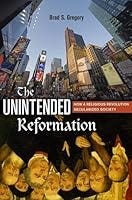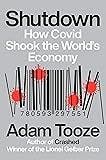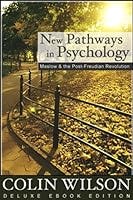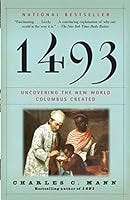I also see three general types of temperament in the human population: exuberant, prudent, and empathetic.
. . . .
By temperament I mean a person’s underlying emotional and cognitive predisposition towards the world. People with an exuberant temperament are fundamentally optimistic and happy. They have a strong sense of human agency, so they’re joyous about life’s possibilities to explore, create, and flourish. And they aspire to have the opportunity to change and to grow, which means they’re deeply averse to any kind of constraint.
People with a prudent temperament, in contrast, are fundamentally cautious. They have an acute sense of the dangers lurking in the world, so their main aspiration is safety. They tend to be more skeptical about human agency and more motivated by fear, and they’re apt to think recklessness and profligacy tempt fate. But their perspective isn’t necessarily bleak: because they’re sensitive to the fragility of order and to the interdependence of things around them, the world often provokes in these people feelings of awe and reverence.
Finally, those with an empathetic temperament are motivated by both compassion for people (or perhaps for living things generally) and by anger when the people (or living things) they care about aren’t treated well. They’re averse to suffering and, most fundamentally, they aspire to justice and fairness as understood within a framework of strong moral values.
. . . .
People with an exuberant temperament will tend to see the world as safe, believe in agency, be oriented towards the future, and be inclined to encourage change and resist authority. People with a prudent temperament are more likely to see the world as dangerous and be skeptical about agency. And finally, people with an empathetic temperament will stress the basic generosity of human nature, the fundamental similarity of all human beings, and the importance of caring for others. Most people’s personalities mix all three temperaments to different degrees. If an apex of a triangle represents the pure form of each, hardly anyone falls exactly at one apex; instead people generally fall somewhere in the space in between the three. And to the extent that most of us have a bit of each temperament available to us, we’re able to emphasize one bit or another, as our circumstances change. But what has surprised me over the years is how readily people can be sorted into one of these three categories— how much, in other words, people tend to cluster towards the triangle’s corners.
I don’t know that I’ve ever encountered this particular trio of human traits, but I think that Homer-Dixon’s categorization works. And for the record, I see myself as centered in the “prudent” category—me and George H.W. Bush. But I appreciate that I can also exhibit periods and traits of optimism and empathy. Interesting.
The Reformation endured and brought endless doctrinal controversies in its wake—about Christ, the sacraments, liturgy, sin and grace, salvation, the church, ministry, scripture, and authority. The controversies obliterated the existing, shared framework of beliefs within which new intellectual challenges and influences might be confronted, appropriated, and discriminatingly assimilated, as neo-Platonism had been in early medieval monasteries or Aristotelianism in thirteenth-century universities.
Overall, I don’t think that Professor Gregory is a big fan of the Reformation.
I made a mistake; and I bet on it. This let me experience the mistake in a way that helped me better learn from it. When you’re thinking about large, messy phenomena like “the adequacy of human civilization at understanding nutrition,” it’s easy to get caught up in plausible-sounding stories and never quite get around to running the experiment. Run experiments; place bets; say oops. Anything less is an act of self-sabotage.
There’s no teacher like failure.
Hannah Arendt with Mary McCarthy
To the philosopher, speaking out of the experience of the thinking ego, man is quite naturally not just word but thought made flesh, the always mysterious, never fully elucidated incarnation of the thinking capability.
We humans are both a part of Nature and apart from Nature.
But two basic elements were missing from the original fascist equation in America in 2020. One is total war. Americans remember the Civil War and imagine future civil wars to come. They have recently engaged in expeditionary wars that have blown back on American society in militarized policing and paramilitary fantasies. But total war reconfigures society in quite a different way. It constitutes a mass body, not the individualized commandos of 2020.
Still, the trend is frightening; frightening that we might even need to consider the possibility, perhaps now more likely than ever.
Like all animals, man has evolved through fighting and struggling. It is at a very recent point in his history that he invented civilisation. Fighting and struggling have become a habit, and he finds it difficult to adjust to a life without them. Lack of struggle does not affect most animals because they live closer to their instincts; their life-rhythms are the rhythms of the blood. But man has cut himself off from this level, by his development of intellectual consciousness. He is in a difficult position, neither one thing nor the other, no longer an animal, but a long way from being a god, or even a wise and self-controlled being.
I repeat: we are both a part of Nature and apart from Nature. On the Great Chain of Being, we sit between the Beasts and the Angels (or gods, if you prefer). We are of the Middle World,
Just America embraces an ideology of rigid identity groups that keeps the professional class in its superior place, divides workers, and has little to do with the reality of an increasingly multiracial, intermarrying society. Workers of all backgrounds have much more in common than our politics acknowledges. Any viable narrative has to include them all.
Packer suggests that identity politics divides more than it unites. Packer, implies, I think, that the proletariat of the nation unite! And there’s some good sense in this, more so than drilling down on identity politics.
Fun, exciting, and wildly addictive, tobacco was an instant hit around the globe—the first time people in every continent simultaneously became enraptured by a novelty. N. tabacum was the leading edge of the Columbian Exchange.
Or tobacco can be seen as the revenge of Native American peoples on the rest of the world, a lingering plague that continues to extract a form of revenge for the plagues brought by the Eurasians to the Americas.
More:
A few random thoughts in the Supreme Court decision yesterday on Trump’s case and presidential immunity:
Originalism—at least as an all-encompassing and stand-alone mode of constitutional interpretation—is dead. I never thought it capable as a stand-alone mode, but useful as a tool in the interpretative toolbox. But the Court radicals (more on this in a moment) jettison original intent whenever it stands in the way of their preconceptions.
Don’t ever call this court a conservative court. It is a radical court. It is a right-wing dominant court. If it doesn’t conserve something so fundamental as constraints on presidential power and the primacy of the rule of law, even for the president, it’s not conserving one of the most fundamental values of the Founders.
Justice Sotomayor’s dissent provides a clear vision of what this is about, the history, and the implications. Chief Justice Roberts’s majority opinion drones on and on about this distinction and that tries to make an elegant silk purse out of his sow’s ear of a result.
Would that we had a Supreme Court that exercises judicial restraint and that reins in the powerful and empowers the weak!









